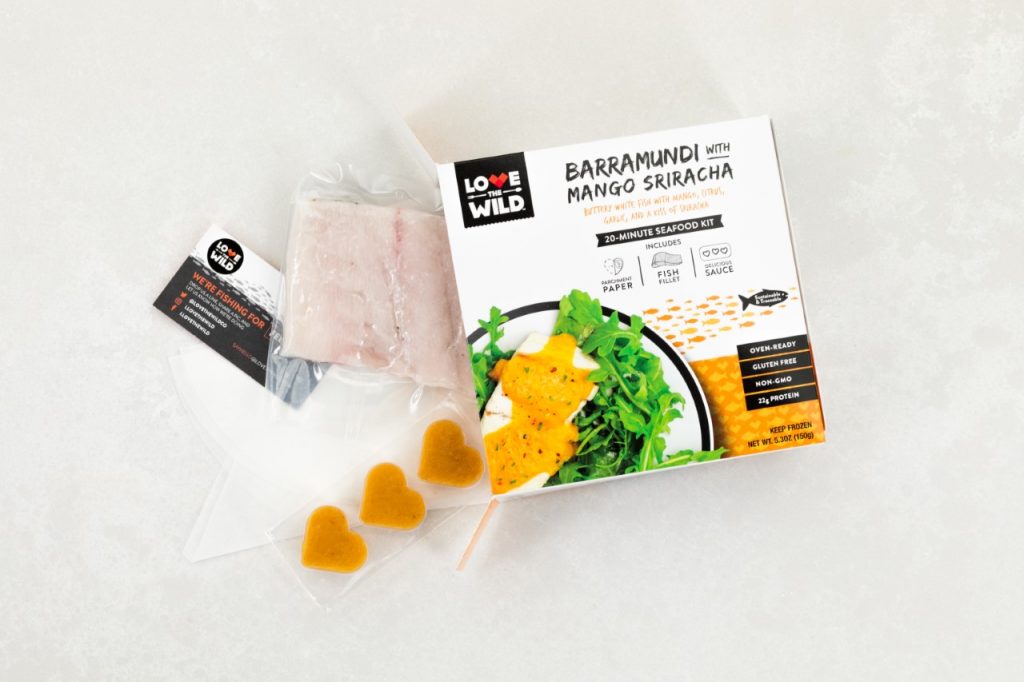
Love the Wild ends retail presence
March 27, 2020
By Lynn Fantom
 Products like striped bass with roasted red pepper almond sauce and barramundi with mango sriracha earned high marks for quality and taste but prices of Love the Wild products challenged the family budget (Credit: Love the Wild)
Products like striped bass with roasted red pepper almond sauce and barramundi with mango sriracha earned high marks for quality and taste but prices of Love the Wild products challenged the family budget (Credit: Love the Wild) Love the Wild, a frozen farmed fish venture that has Leonardo Di Caprio as investor and advisor, is ending its consumer products operation because it is unable to compete in the market with its prices.
CEO and co-founder Jacqueline Claudia said, however, that she will maintain the brand in a yet-to-be-disclosed form.
“The magic price point was the same as organic, free-range chicken breasts,” she said. During promotions where the products were sold at discounted prices, she said their sales exploded. “Sadly, that was not at a sustainable margin for us, but that really shows that the market’s there,” she added.
Products will be on the shelves at Whole Foods until April 1 but online sales have been discontinued.
Love the Wild was ahead of the curve in supplying the market with portable and easy-to-prepare foods. Launched in 2014, the Boulder-based business marketed “kits” of frozen fish, including farm-raised salmon, shrimp, trout, and barramundi. Priced at an average of $7, each kit featured parchment for cooking and a sauce accompaniment frozen in heart shapes, which one investor lauded as suggesting “heart healthy.”
The start-up gained traction not only with high-profile investors, but retailers too. In addition to selling online, it racked up distribution in over 4,000 stores nationwide that included Super Target, Safeway, Whole Foods and Wegmans. Products like striped bass with roasted red pepper almond sauce and barramundi with mango sriracha earned high marks for quality and taste, building momentum through the earned media of food reviews and cooking shows. In 2019, Love the Wild introduced bowls ideal for lunchtime.
One of the brand’s distinctive traits was identification on the package of the fish’s origin: farm, location, owner, pen and Monterey Bay Seafood Watch rating. As she built her business, Claudia, whose resume includes a stint as Chief Strategy Officer at Kampachi Farms, became a dynamic spokesperson for aquaculture.
“I have a deep appreciation for the costs to feed fish the most sustainable feeds possible, to operate with the highest environmental standards possible, to have all of the certifications that the market is telling you that you need to have to sell the product.”
But, in the end, the cost was too much for the consumers to swallow.





